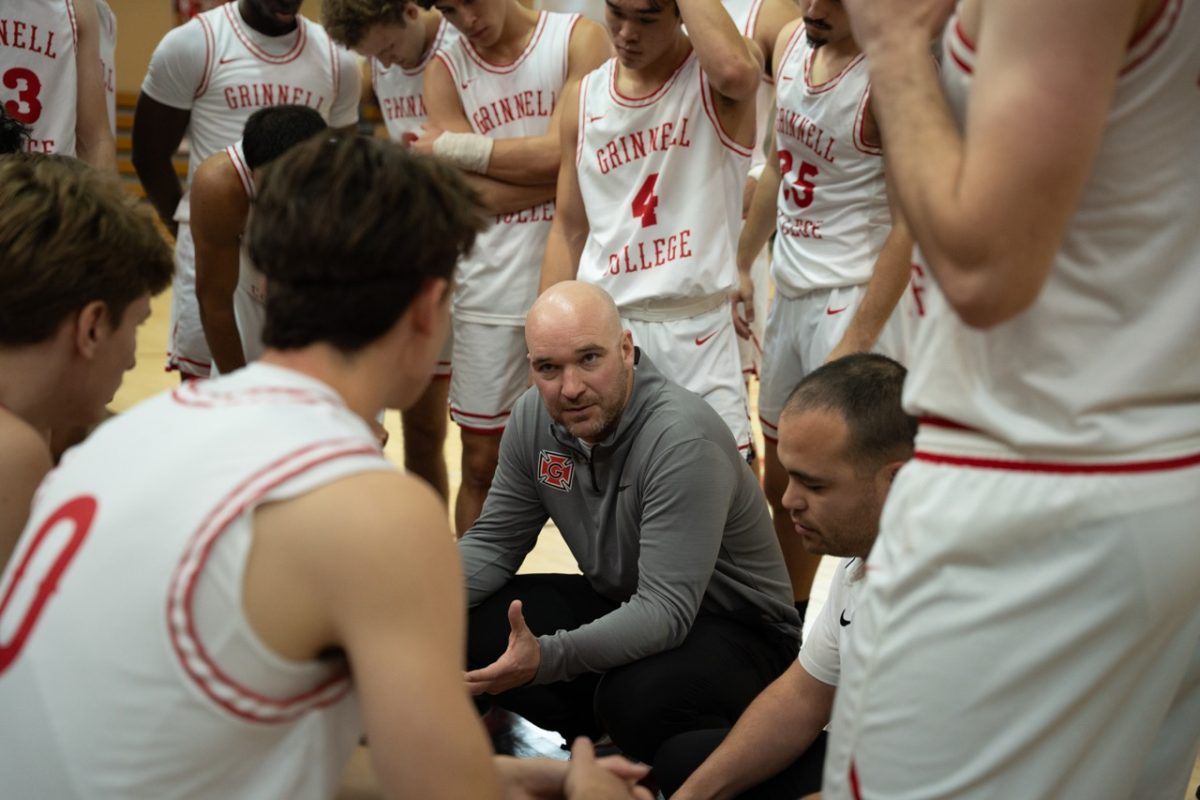By Jacqui Vautin
vautinja@grinnell.edu
Despite lacking a physical mascot, Grinnell’s twenty varsity teams take pride in calling themselves Pioneers. However, other teams break the mold and adopt different mascots, including the Wild Turkeys, the Black Sheep, the Grinnellephants, and the Sticky Tongue Frogs. These are examples of club sports at Grinnell: more competitive than intramurals but lacking varsity status.
There are several distinctions between varsity and club sports, including frequency of practice, access to facilities, coaching and funding. Varsity sports tend to practice every day and have many competitions each year. However, club sports are sometimes less intense. Women’s water polo, for example, practices three times a week and has three tournaments each season. Varsity athletes have team locker rooms, towel and laundry services and can be seen by a trainer when injured, while clubs sports have none of these privileges.
Additionally, varsity sports have priority when it comes to shared space, like the pool or the fieldhouse. This can lead to situations for club sports that are not ideal, such as water polo having to move or share their space if a varsity team wants to use the pool. Ultimate Frisbee sometimes practices from 10:00 to 11:00 p.m., which, as women’s co-captain Carla Eckland points out, has several disadvantages.
“You should not be exercising that late at night and it makes sleep and homework even more difficult to manage,” Eckland said.
Another difference is that unlike club sports, varsity sports have coaches to supervise practice and conduct necessary administrative duties like ordering equipment, finding transportation, recruiting players and getting funding through the Athletic Department. Transportation can sometimes be a concern for students in club sports.
“[As a varsity sport,] we would not have to worry about tired students having just played Frisbee all weekend having to drive six hours home on a Sunday night,” said Dan Ehrlich ’14, member of the men’s Ultimate Frisbee team.
There isn’t as much pressure in club sports, and missing practice isn’t considered a huge deal. However, it is also harder to recruit players.
“Many players are beginners, so we have to start from scratch,” said Sara Hanneman ’14, co-captain of the women’s water polo team, the Black Sheep.
In terms of funding, club sports are funded through SGA. There is now a separate club sports budget, which shares funds between Ultimate, Volleyball Club, water polo and Running Club. Additionally, members attempt to raise money through hosting a home tournament, seeking funding from alums or even making personal donations.
Conflict over space, funding and certain privileges can lead to occasional tensions. However, club athletes do not necessarily want their sport to become varsity.
“As a varsity sport, we would be completely funded by the College, but that brings with it greater expectations, greater time commitments. … There are definitely some people on the team that would like to see [water polo] become a varsity sport, but there are some negatives that go along with [attaining varsity status],” said Alec Knight ’13, four-year member of the men’s water polo team. “It could end up hurting the polo program because people would choose to do swimming instead of polo or vice versa if both were varsity because the seasons overlap.”
The men’s water polo team, called the Wild Turkeys, was fourth at Nationals last year. Other team captains have similar concerns about becoming a varsity sport, at least in the short-term.
“The men and women’s Frisbee teams would be interested in becoming varsity sports at Grinnell, but that would require a lot of changes in the Ultimate program that we are not quite ready to make,” Eckland said.
The same is true for water polo.
“In order to have interest in being a varsity sport, we’d likely need athletes who were more intense about water polo,” Hanneman said. “Additionally, there aren’t many varsity polo teams in the area, so we may have to travel pretty far in order to compete.”
In fact, there are some benefits to club sport status.
“I personally like that [water polo] has been a club sport. It makes it much more open. If you’re playing varsity sports, there’s the expectation that your skills are at a certain level,” Knight said. “It’s very hard to pick up a new sport in college, but I’d never played water polo until I came to Grinnell.”
A major drawback is not having a professional coach. However, neither Hannemann nor her co-captain Kristina De La Torre ’14 think water polo will become a varsity sport any time soon, citing lack of student interest.
“I think people enjoy how casual it is,” De La Torre said.
However, club sport athletes can feel like second-class citizens at times.
“[Even if we received varsity status] we’d still be at the bottom of the pecking order, but we’d get a little bit more respect in the bottom of the pecking order…that can sometimes be our complaint as a team,” Ehrlich said. “We try very hard to be respectful and responsible and sometimes we don’t get the same respect that we give.”
At this point in time, Ehrlich feels that there are things more important to Frisbee than going varsity.
“It’s less of an issue of varsity status and more of an issue of clear and respectful status. It’s hard to know where we stand,” he said. “There is a lot of miscommunication on both sides, like losing our practice fields with no prior warning.”



















































